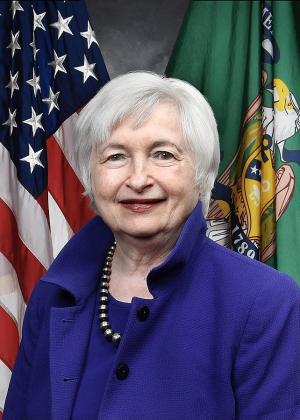FLASH FRIDAY is a weekly content series looking at the past, present and future of capital markets trading and technology. FLASH FRIDAY is sponsored by Instinet, a Nomura company.
The FTX fiasco has shaken the cryptocurrency sector over the last few weeks. The nadir so far was when FTX boss Sam Bankman-Fried (SBF) said that his exchange and some 130 affiliated entities had filed for Chapter 11 bankruptcy protection.

Changpeng ‘CZ’ Zhao, CEO of Binance, tweeted that his firm might come to the rescue by signing a non-binding deal to buy the non-U.S. portion of FTX, with both SBF and CZ confirming the agreement via Twitter. However, the acquisition was not guaranteed, and Binance had walked away from the deal. “The sector has been rocked by these recent events,” commented Nigel Green, CEO of deVere, one of the world’s largest independent financial advisory, asset management and fintech organisations.
Later on, the Binance CEO, CZ, said he is planning to set up a global industry body for crypto firms. “He has unveiled his intention to form an industry recovery fund, to help firms who have a liquidity crisis,” commented Green.
“Crypto does not need saviours in the form of business leaders with their own interests at stake,” he said.
“What crypto does need, however, is a strong regulatory framework to be established and approved at an international level,” said Green.
“Cryptocurrencies in some form or another are here to stay – and the market is only set to grow. As such, cryptocurrencies must come into the regulatory tent and be held to the same standards as the rest of the financial system,” he stressed.

According to Lionel Rebibo, Trakx CEO, the lasting effects of the FTX contagion are still not fully understood. “Many are calling the failure of FTX the “Lehman Moment” of the crypto world,” he stressed.
To prevent another fallout, exchanges should try as best as possible to separate their assets from the assets of their users, according to Rebibo.
“While it cannot be achieved with 100% accuracy, commingling should be mitigated to the highest extent possible and oversight over the governance of these assets should be strict,” he said.
Additionally, Rebibo said that private keys should not be managed by the exchange itself: “In many exchanges, including FTX, these assets tend to be put in omnibus accounts with very loose terms and conditions, making these assets only owned indirectly.”
Using a third-party custodian for user assets and keys provides an additional buffer that would reduce the risk for retail investors, he added.
He further commented that proof of reserves is not likely to solve the problem. Exchanges and crypto asset firms will likely need to be audited externally in order for the problem to truly be solved and it will likely take months, or even years, for regulations to catch up with the market, Rebibo said.
“We expect that many exchanges that “show” proof of reserves are not reporting this properly,” he added.
Rebibo also mentioned that transparency should be a key goal for the industry, but “this again will take time to implement”.

David Wells, CEO of Enclave Markets, added that the FTX collapse emphasizes even more the need for clear and sensible regulation, especially in the US.
“This will be a great time/opportunity for the lawmakers to provide the industry with a regulatory framework that promotes safety and protection for the consumers, while also preserving the innovative edge that the US has compared to the rest of the world,” he noted.
Wells said that trading platforms should be constructed with transparency and fairness in mind and be designed for the many, not the privileged few.
He also said exchanges should be governed by code specifically written to prevent front-running, misuse of user funds, stop-loss hunting and other malicious behavior.
Finally, according to Wells, exchanges should utilize remote attestation so that no individual actors (including any trading firms) have preferential access to the order flow, and that no single point of failure exists.

On the recent crypto market developments, Secretary of the Treasury Janet L. Yellen, said that the recent failure of a major cryptocurrency exchange and the unfortunate impact that has resulted for holders and investors of crypto assets “demonstrate the need for more effective oversight of cryptocurrency markets”.
Over the past year, through the President’s Working Group on Financial Markets and in response to the President’s Executive Order on Digital Assets, the Treasury Department worked with its regulatory partners to identify risks in crypto markets, according to Yellen.
“Some of the risks we identified in these reports, including comingling of customer assets, lack of transparency, and conflicts of interest, were at the center of the crypto market stresses observed over the past week,” she commented.
“We have very strong investor and consumer protection laws for most of our financial products and markets that are designed to address these risks,” she added.
Where existing regulations apply, they must be enforced rigorously so that the same protections and principles apply to crypto assets and services, Yellen said.
She added that the federal government, including Congress, also needs to move quickly to fill the regulatory gaps the Biden Administration has identified.
In terms of financial stability, spillovers from the events in crypto markets have been limited, but a recent report by the Financial Stability Oversight Council, which Treasury chairs, warned that further interconnections of the traditional financial system and crypto markets could raise broader financial stability concerns.
“Going forward, it’s vital we do what is necessary to address these concerning risks and act to protect consumers and promote financial stability,” Yellen said.
Enclave Markets’s Wells added that 2023 will be a big year for innovative regulation in the crypto industry.
Meanwhile, it is very important to concentrate on educating policymakers in understanding the benefits of the decentralized platforms while addressing the many nuanced issues between tradfi and defi, he stressed.
“We may see different reactions from different regulators, but consumer protections will likely drive the upcoming regulatory agendas,” he concluded.







